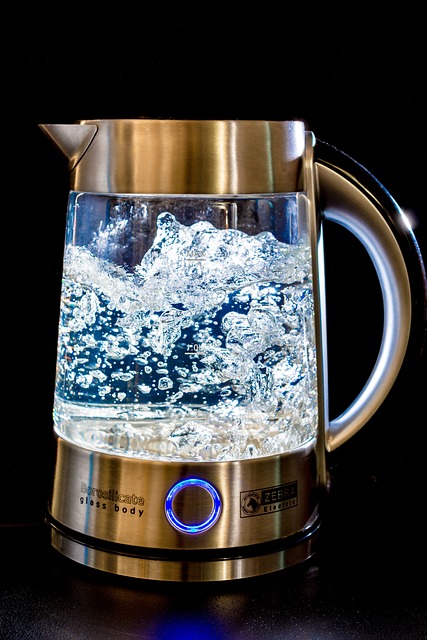Homeowners trying DIY repairs on water heaters should look out for signs like leaks, unusual noises, reduced hot water output, or absence of hot water, indicating the need for professional help. Water heaters over 10 years old may also require upgrading for energy efficiency and safety. Regular vigilance ensures you're prepared to swap out an old heater when necessary.
Are you tired of frequent DIY water heater fixes? It might be time for an upgrade! This article explores common water heater issues, from temperature fluctuations and low pressure to rusted tanks. We’ll guide you through when DIY solutions fall short and highlight the benefits of upgrading to a new model—including enhanced energy efficiency, advanced safety features, and peace of mind. Discover the signs you need a new water heater and take control of reliable hot water today.
- Identifying Common Water Heater Issues
- – List common problems and their symptoms
- – Include frequent temperature fluctuations, low water pressure, loud noises, excessive energy bills, and rusted tanks
Identifying Common Water Heater Issues

Many homeowners often turn to DIY fixes when their water heaters start showing signs of distress, aiming to extend the life of these essential appliances. However, there comes a point when even the most determined DIYer realizes that simple repairs aren’t cutting it anymore. Identifying common water heater issues early on is crucial in determining whether it’s time for a replacement.
Some clear signs you need a new water heater include persistent leaks, unusual noises during operation, significantly reduced hot water output, or the absence of hot water altogether despite consistent usage. Additionally, if your water heater is more than 10 years old, it’s likely due for an upgrade, as modern models are designed with energy efficiency and longer lifespans in mind. Keep an eye out for these indicators to ensure you’re prepared when it’s time to say goodbye to your old water heater and embrace a new, more reliable one.
– List common problems and their symptoms

Many homeowners attempt to extend the life of their water heaters through DIY fixes, but there comes a point where these quick solutions aren’t enough. Recognizing the signs that your water heater needs replacing is crucial for maintaining a reliable and efficient hot water supply. Common issues include decreased water temperature, noticeable rust or corrosion on the tank, frequent temperature fluctuations, and increased energy bills.
If you experience prolonged cold showers despite setting the thermostat higher, it could indicate a faulty heating element. Leaks around the base or top of the tank, as well as strange noises coming from the heater, are further signs that replacement may be necessary. Regular maintenance can often address minor issues, but as time goes on, these problems compound, leading to a less efficient and potentially dangerous situation.
– Include frequent temperature fluctuations, low water pressure, loud noises, excessive energy bills, and rusted tanks

If your water heater is showing signs of strain, it might be time to consider a replacement. One of the most obvious indicators is frequent temperature fluctuations in your hot water supply—it’s either scalding or cold, with no consistent middle ground. This inconsistency can lead to uncomfortable showers and wasted energy as you adjust the thermostat repeatedly.
Other red flags include low water pressure, which can make it feel like the shower head is barely flowing, and loud noises coming from the heater, suggesting internal components may be wearing out. Moreover, if your energy bills have suddenly spiked, it could be due to an inefficient water heater struggling to meet your household’s demands. Lastly, rusted tanks are a clear sign that your water heater has reached the end of its useful life, as corrosion can lead to leaks and even failure, posing potential safety hazards.
If your water heater is showing signs of wear and tear, such as frequent temperature swings, low pressure, unusual noises, high energy bills, or rust buildup, it might be time to consider a replacement. While DIY fixes can address minor issues, persistent problems often indicate more significant underlying issues that require professional attention. Upgrading to a new water heater ensures consistent hot water supply, energy efficiency, and peace of mind. Don’t let small inconveniences turn into major disruptions—it’s wise to recognize the signs you need a new water heater and take action before it’s too late.
